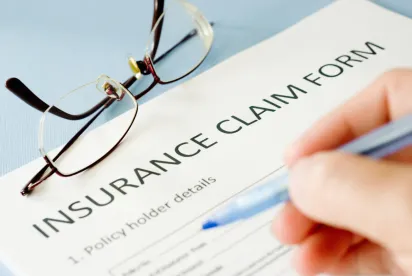A lot has been written about policyholders scrambling to find insurance coverage for the COVID-19 pandemic. At some point, however, these same policyholders will need to renew their insurance for the next policy period, and many will be asking what to do. While most policyholders are currently focused on looking back to find coverage for existing and ongoing losses, this article looks forward, at what policyholders need to consider with their renewal policies.
Commercial General Liability
The issue first and foremost on the minds of those planning to reopen their businesses is what exposure they might face if a customer or visitor claims to become infected with COVID-19 at their place of business. This may be difficult to prove, given the prevalence of the virus. But, policyholders should review their commercial general liability coverage (and in particular, "bodily injury" coverage) with this in mind. Additionally, policyholders should be on the lookout for an exclusion for losses due to a virus. Such exclusions may not be obvious. Loss due to a virus may be excluded in a standalone endorsement, or as part of an exclusion for bacteria or fungus, or may be part of an exclusion for microorganisms or contaminants.
Property Insurance (Including Business Interruption)
Property insurance typically includes coverage for business interruption. This single area of coverage is what most policyholders have focused on and pursued in response to the stay-at-home and related orders imposed nationwide. Business interruption insurance includes not only losses resulting from damage to the insured property, but also contingent business income coverage, which applies to damage to other property affecting the insured property. This coverage also typically includes civil authority coverage, which applies when a government order prohibits access to the insured property or surrounding area.
Insurers are responding to policyholders with two primary obstacles to this coverage. First, this coverage requires "direct physical loss" to the property. Whether the existence of COVID-19 constitutes physical loss is an issue that will be litigated for years, although in certain jurisdiction, prior caselaw supports such an argument. Second, many of these policies have exclusions for loss caused by a virus. This is another issue that is and will remain the subject of litigation.
In light of these obstacles, policyholders will need to consider the implications of whether and to what extent they may have coverage for future COVID-19 outbreaks or related health emergencies. The Insurance Services Office (ISO), which develops forms used by the insurance industry, has issued two advisory forms that would provide limited coverage for COVID-19 going forward. But it is unclear whether any insurers will use these forms and offer this coverage, and more importantly, what sort of premiums they might charge. At a minimum, policyholders reviewing renewal policies will need to be on the lookout for insurers that add virus exclusions that may not have previously existed. Typically, insurance companies are obligated to expressly advise policyholders of such changes to their coverage.
D&O Insurance
Businesses will want to make sure their Directors' & Officers' Liability insurance is up-to-date with current events. Businesses may face myriad claims resulting from the pandemic, such as claims for breach of fiduciary duty relating to drops in stock price, or for their handling of business issues more generally during the pandemic. Indeed, several class action lawsuits have already been filed against companies regarding statements affecting their stock price or financial outlook. More of these lawsuits can be expected. Many companies unfortunately may also be facing bankruptcy or related insolvency issues. These situations can often lead to claims that directors and officers did not properly steer the business through this tumultuous time. Keep in mind that D&O policies often exclude coverage for damage caused by "bodily injury," and insurers can be expected to raise this exclusion for any COVID-19 claims under a D&O policy.
Most D&O policies provide "claims made" coverage, which means that the policy in place when a "claim" is made will be the policy to respond. This may be the current policy period, or it may be the next one. Businesses will need to keep in mind this potential exposure when reviewing their renewal policies.
Workers' Compensation
Workers' compensation insurance is another area of concern. These policies typically cover injuries arising out of or in the course of employment. Some states, such as Illinois, have already passed emergency rules declaring that first responders and other essential workers with COVID-19 are entitled to a rebuttable presumption that they became infected in the course of their employment. This may have significant repercussions for both coverage and premiums going forward. And the risk may only increase once businesses reopen.
Cyber Insurance
Never ones to let a crisis go to waste, opportunistic hackers and other fraudsters have tried to take advantage of the pandemic to prey on technology and other vulnerabilities, particularly as employees work remotely on computer systems, and also communicate by means other than in person. As a result, cyber-crimes are on the rise. Policyholders should make sure they are covered for these new challenges and vulnerabilities they may not have previously encountered. For example, many companies are now faced with handling invoicing, payments, and other financial transactions remotely, or by email. Fraudsters regularly try to spoof legitimate email accounts and misdirect payments. Policyholders will be well served by making sure their cyber policy provides coverage in the event funds are misdirected or intercepted. Similarly, it may be more difficult for certain businesses to make sure their data, or that of their customers, is protected. Some cyber policies even require that certain IT protocols are in place for coverage to apply, and will need to make sure these protocols are followed, or at least address in connection with any renewal.
Legislative Solutions
Various state and federal legislators have already proposed legislation to deal with this pandemic and future ones. For example, a number of states have proposed legislation that would require insurance companies to pay business interruption claims notwithstanding a virus exclusion. There has also been a proposal to create a federal program that would provide insurance for future pandemics, similar to the Terrorism Risk Insurance Act, which was created after 9/11 to provide insurance for future attacks.
These proposed laws will face fierce resistance from the insurance industry, but policyholders or their brokers should closely monitor these developments.
Insurance claims look backward to recoup prior or existing losses. More losses and claims can be expected for the immediate future. Policyholders will soon need to turn their attention forward to insurance renewals and future policies, to make sure they are protected as businesses reopen, and will need to pay particular attention to the onslaught of potential claims arising from COVID-19.





 />i
/>i

